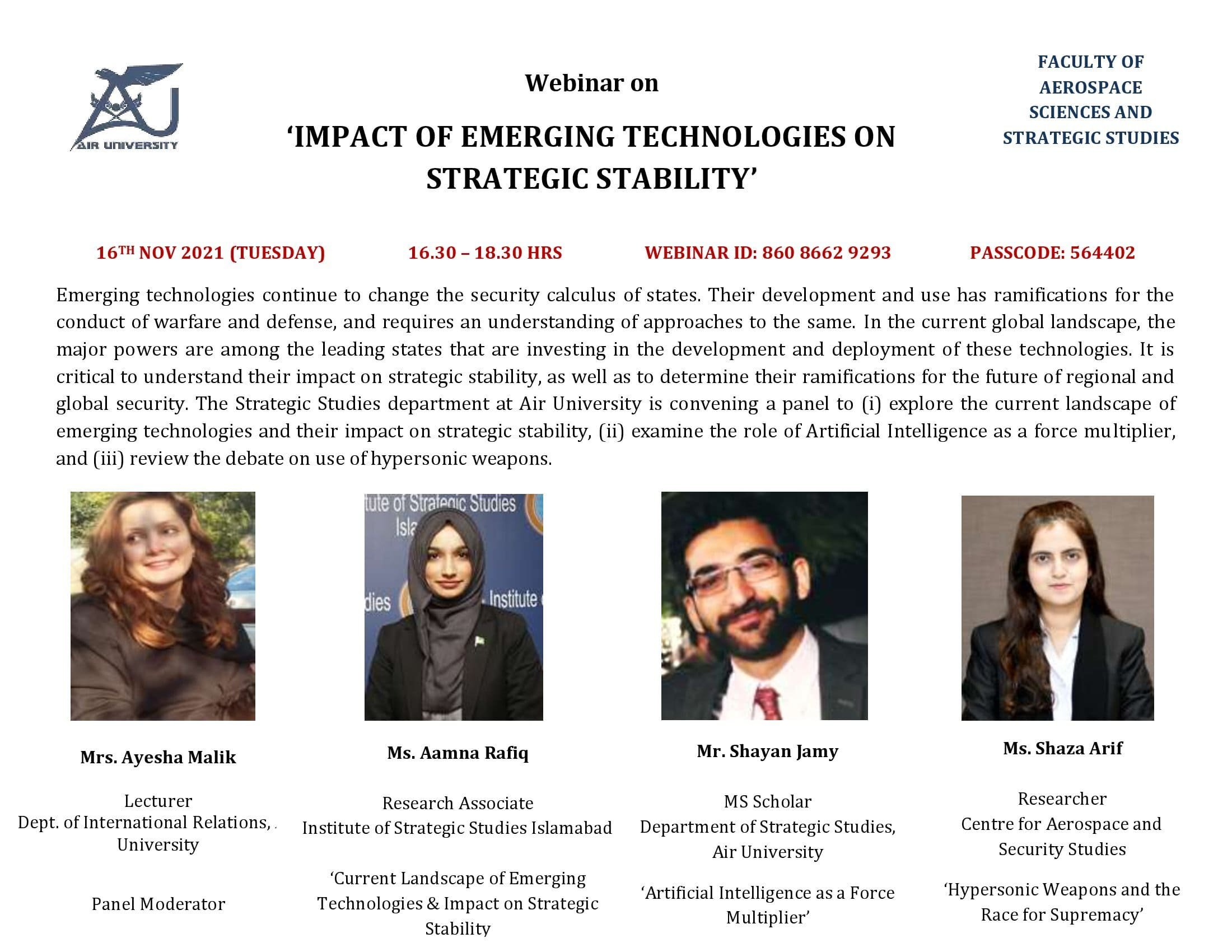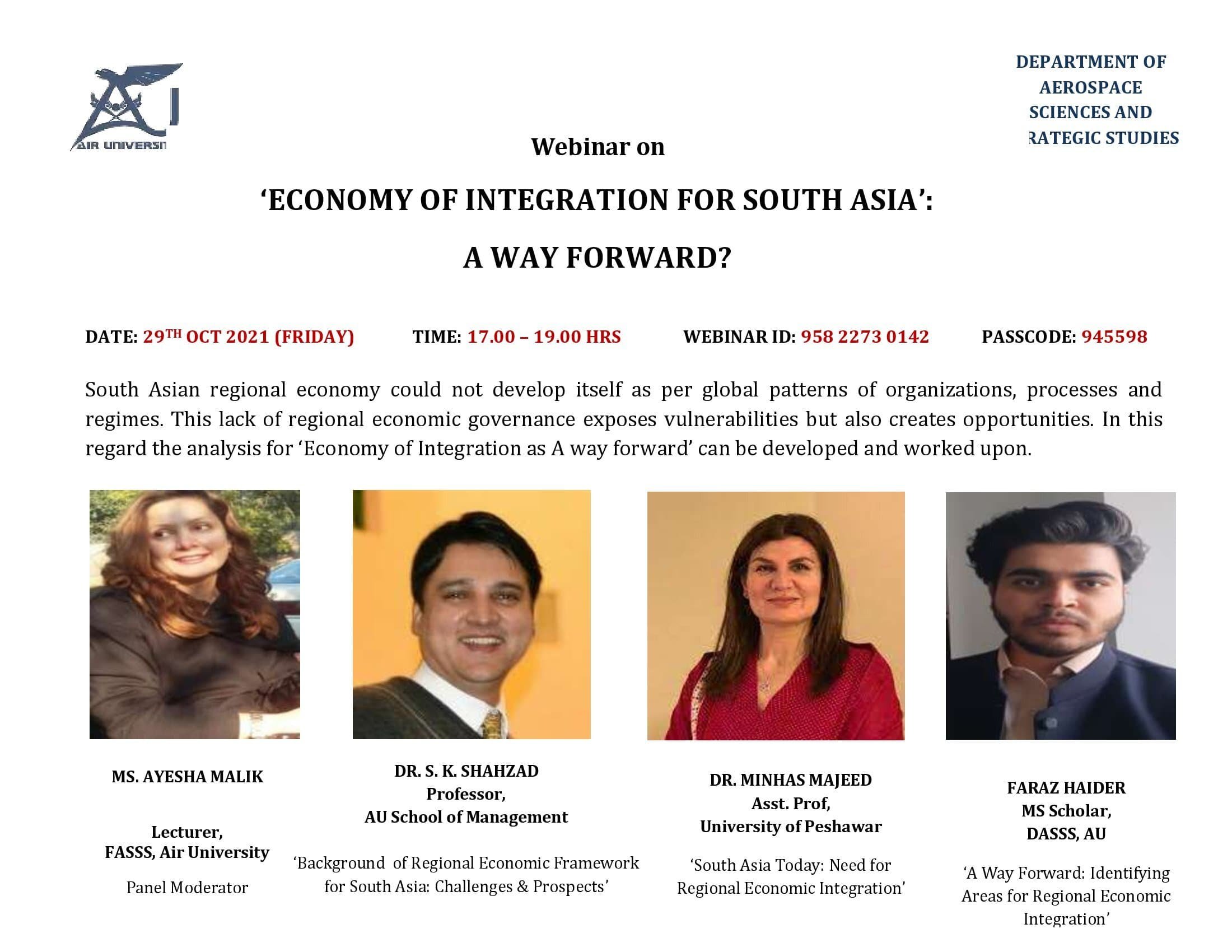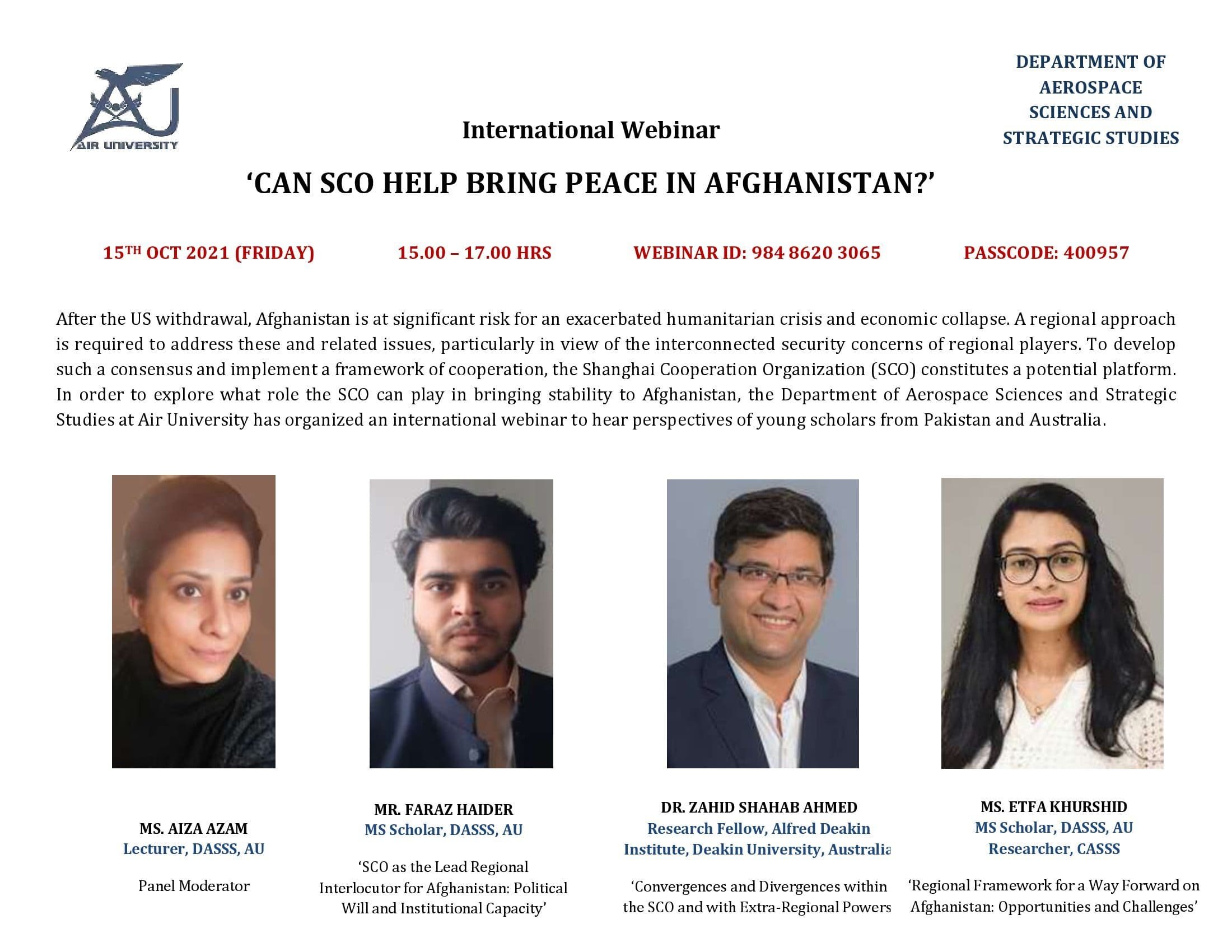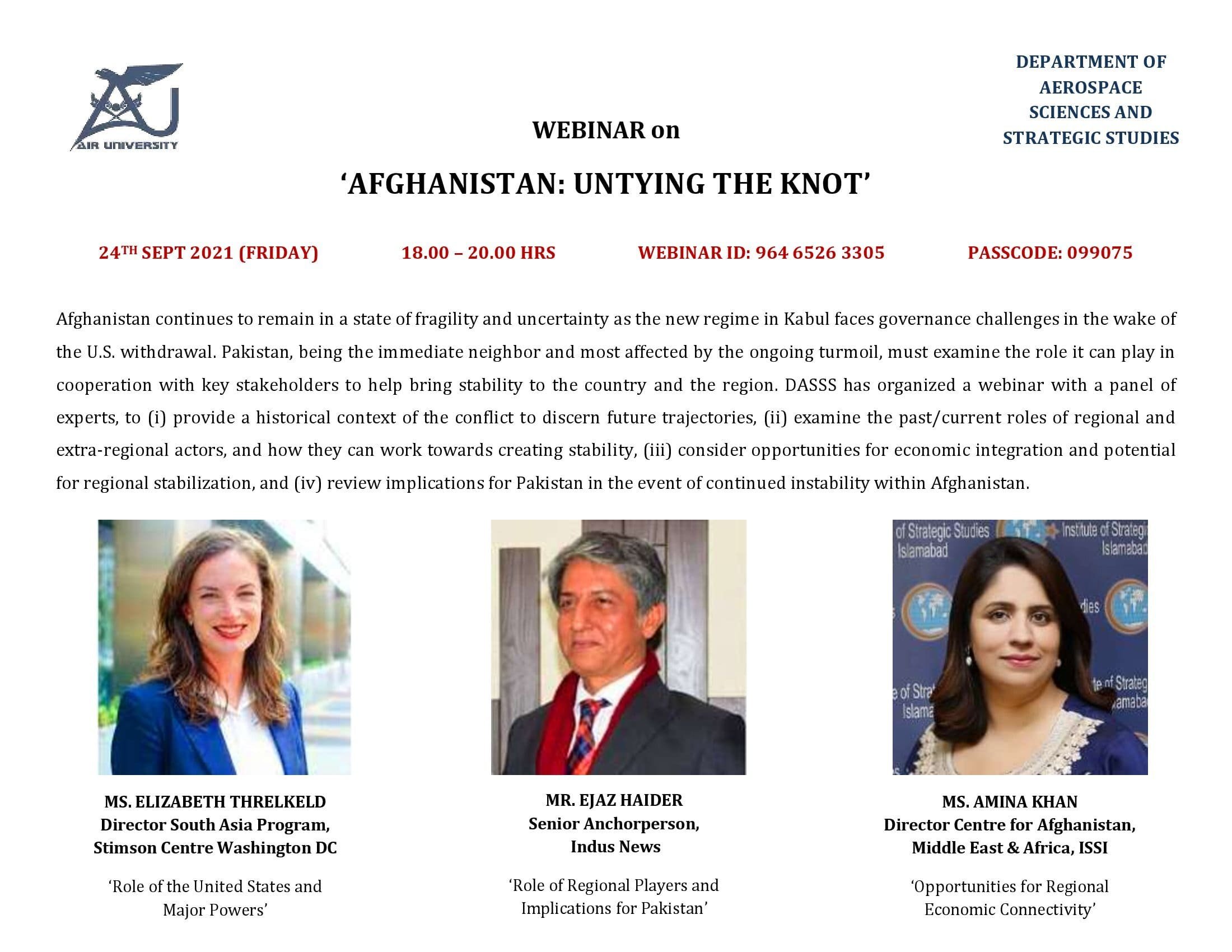'Impact of Emerging Technologies on Strategic Stability'
Emerging technologies continue to change the security calculus of states. Their development and use has ramifications for the conduct of warfare and defense, and requires an understanding of approaches to the same. In the current global landscape, the major powers are among the leading states that are investing in the development and deployment of these technologies. It is critical to understand their impact on strategic stability, as well as to determine their ramifications for the future of regional and global security. The Strategic Studies department at Air University is convening a panel to (i) explore the current landscape of emerging technologies and their impact on strategic stability, (ii) examine the role of Artificial Intelligence as a force multiplier, and (iii) review the debate on use of hypersonic weapons.

Economy of Integration for South Asia: A way forward?'
South Asian regional economy could not develop itself as per global patterns of organizations, processes and regimes. This lack of regional economic governance exposes vulnerabilities but also creates opportunities. In this regard the analysis for 'Economy of Integration as A way forward' can be developed and worked upon.

'Can SCO Help Bring Peace in Afghanistan?'
After the US withdrawal, Afghanistan is at significant risk for an exacerbated humanitarian crisis and economic collapse. A regional approach is required to address these and related issues, particularly in view of the interconnected security concerns of regional players. To develop such a consensus and implement a framework of cooperation, the Shanghai Cooperation Organization (SCO) constitutes a potential platform.
In order to explore what role the SCO can play in bringing stability to Afghanistan, the Department of Aerospace Sciences and Strategic Studies at Air University has organized an international webinar to hear perspectives of young scholars from Pakistan and Australia.

'Afghanistan: Untying the Knot'
Afghanistan continues to remain in a state of fragility and uncertainty as the new regime in Kabul faces governance challenges in the wake of the U.S. withdrawal. Pakistan, being the immediate neighbor and most affected by the ongoing turmoil, must examine the role it can play in cooperation with key stakeholders to help bring stability to the country and the region. DASSS has organized a webinar with a panel of experts, to (i) provide a historical context of the conflict to discern future trajectories, (ii) examine the past/current roles of regional and extra-regional actors, and how they can work towards creating stability, (iii) consider opportunities for economic integration and potential for regional stabilization, and (iv) review implications for Pakistan in the event of continued instability within Afghanistan
